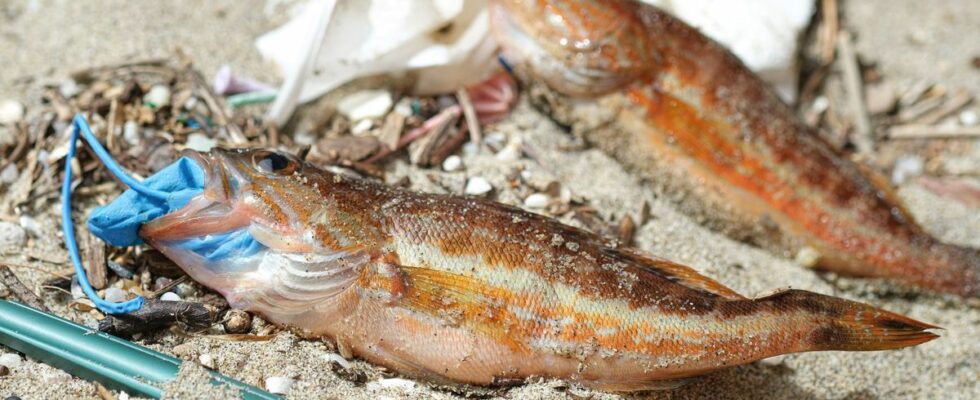Published on
Updated
Reading 1 min.
Omnipresent in the environment, microplastics penetrate deep into the bodies of fish, to the point of being found in large numbers in the fillets that we eat, reveals a Canadian study published Wednesday and carried out near Toronto.
By analyzing 45 freshwater fish from a lake in an urban and industrial area of eastern Canada, researchers from the University of Toronto and the Ontario Ministry of the Environment found that they contained an average of 138 microplastics per individual, 17 times more than estimates from previous studies.
And they found that each fish fillet contained an average of 56 microplastic particles, according to the study published in the journal Environmental Health Perspectives.
“I was surprised, a little discouraged even.“, says Madeleine Milne, principal investigator, who sought to “highlight the fact that microplastics can enter nets“, which is the part of the fish that we consume the most.
These pollutants, some of which have been found as far away as Antarctica, are the result of the physical and chemical degradation of objects that take hundreds of years to degrade.
Most often invisible to the naked eye, these particles are made of polymers and other toxic compounds that vary between 5 mm to one thousandth of a millimeter.
Their impacts, particularly on the health of humans who consume them, have only been studied since the early 2000s, but are still little known and require further research, according to a recent report from the World Health Organization.
“We also observed a lot of rubber particles (…) likely from tire wear over time” adds Madeleine Milne.
“It is important that people are aware of the degree of contamination of the different foods they eat.“, says the researcher, emphasizing the need to establish a large-scale geographical analysis, particularly near the sources of microplastics.
Several studies have shown that these particles can have various adverse effects on fish, including negative effects on growth, reproduction rate and survival.
